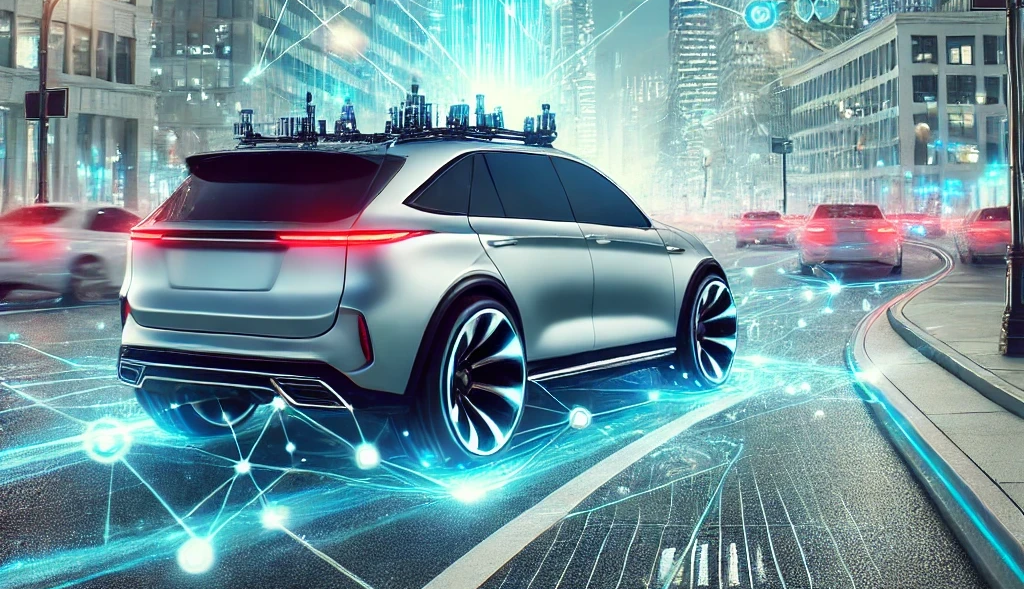In the modern automotive industry, big data is playing a crucial role in transforming how vehicles operate, communicate, and enhance the overall driving experience. With the rise of artificial intelligence (AI) and connected car technology, data analytics is enabling smarter, safer, and more efficient vehicles. Whether it’s self-driving cars, predictive maintenance, or advanced navigation systems, big data is at the heart of these innovations.
Enhancing Vehicle Performance and Safety
Automakers are leveraging big data to analyze real-time driving patterns, weather conditions, and traffic flows to optimize vehicle performance. This data-driven approach helps improve fuel efficiency, reduce emissions, and ensure safer driving experiences.
For example, Tesla used cars for sale are equipped with advanced sensors that continuously collect data to enhance their self-driving capabilities. These vehicles process vast amounts of information to detect obstacles, adapt to road conditions, and provide a seamless autonomous driving experience. By analyzing data collected from millions of Tesla vehicles worldwide, the company improves its AI algorithms, making each car smarter and more efficient.
Smart Navigation and Traffic Management
Big data is also reshaping navigation systems by providing real-time traffic insights. Traditional GPS navigation has evolved into AI-powered smart navigation, which not only suggests the fastest route but also predicts congestion, accidents, and roadblocks before they happen.
Connected vehicles can communicate with each other and infrastructure systems, reducing travel time and enhancing overall road safety. This level of data integration allows drivers to make informed decisions, ensuring a smoother and more predictable journey.
Predictive Maintenance and Cost Efficiency
One of the most significant advantages of big data in smart vehicles is predictive maintenance. By analyzing data from sensors and diagnostic tools, automakers can predict potential issues before they turn into costly repairs. This technology helps vehicle owners save money while increasing the lifespan of their cars.
Fleet management companies benefit greatly from predictive maintenance as they can schedule servicing efficiently, reducing downtime and maximizing profitability. This proactive approach enhances vehicle reliability and ensures optimal performance.
The Role of AI and Machine Learning in Smart Vehicles
Artificial intelligence and machine learning algorithms are essential in making sense of the enormous amounts of data collected from smart vehicles. AI-powered systems can identify patterns, recognize driving habits, and provide personalized recommendations to enhance the user experience.
For instance, modern vehicles can adjust seat positions, climate control, and entertainment preferences based on the driver’s behavior. AI-driven voice assistants in cars also enable hands-free operation, making driving more convenient and safer.
Future of Big Data in the Automotive Industry
The future of smart vehicles is deeply connected to big data advancements. As 5G networks and edge computing become more widespread, real-time data processing will become faster and more efficient. Autonomous vehicles will continue to evolve, relying on big data to navigate complex urban environments and improve decision-making capabilities.
Moreover, automakers are exploring blockchain technology to enhance data security and protect user privacy. With more data being generated than ever before, ensuring the safe and ethical use of this information will be a priority for the industry.
Conclusion
Big data is revolutionizing the automotive industry, making smart vehicles more intelligent, efficient, and safe. From self-driving technology to predictive maintenance and AI-powered navigation, data analytics is shaping the future of transportation. As innovations continue to unfold, the integration of big data will further enhance the driving experience and pave the way for a new era of mobility. SAT Japan is at the forefront of this transformation, leveraging advanced data-driven solutions to improve vehicle performance and reliability.
Caroline is doing her graduation in IT from the University of South California but keens to work as a freelance blogger. She loves to write on the latest information about IoT, technology, and business. She has innovative ideas and shares her experience with her readers.






